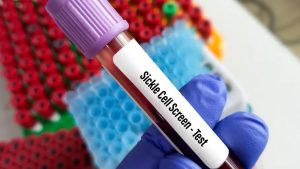German researchers have reportedly developed an Artificial Intelligence (AI) tool that can predict health outcomes for hospitalized COVID-19 patients.
The tool will be able to estimate how well an infected person will react to the virus based on levels of protein in the blood sample.
The research team from Charity-University Medicine in Berlin published its findings in PLOS Digital Health. The study looked at 50 critically ill COVID patients from Germany and Austria, 15 out of whom died. That system was then trialled in a group of 24 real-world patients who were receiving treatment at the hospital, according to a Daily Mail report.
Also Read: BioNTech pairs up with British AI firm to determine if omicron variant should be a concern
“For physicians, it is difficult to estimate the individual risk for a patient of deterioration and/or death from COVID-19,” study co-author Dr Florian Kurth said in a press release.
‘Our study shows that a combination of markers, combined in a risk prediction model based on artificial intelligence, can fairly well predict the probability that an individual patient will die or survive,’ she added.
The researchers analysed trends in protein levels and other biomarkers among those who survived and those who had passed away.
Also Read: Germany considers new COVID restrictions as omicron advances
The levels of fourteen proteins found in the patient’s blood could help estimate their chances of surviving the virus.
This would assist doctors in understanding which patients need intensive care and who will be able to fight the virus themselves, reported Daily Mail.
‘We found 14 proteins which over time changed in opposite directions for patients who survive compared to patients who do not survive in intensive care,’ Kurth said.
Also Read: Omicron to become dominant coronavirus variant in Americas shortly: PAHO
‘Interestingly, the plasma levels of all of those proteins had been found to be altered by COVID-19 before [and] makes us particularly confident in our findings.’
The findings are based on a limited sample size of just 50 patients, and only 24 patients included in its trialling. The results, however, are promising, and researchers hope to try their method on a wide sample, reported Daily Mail.






